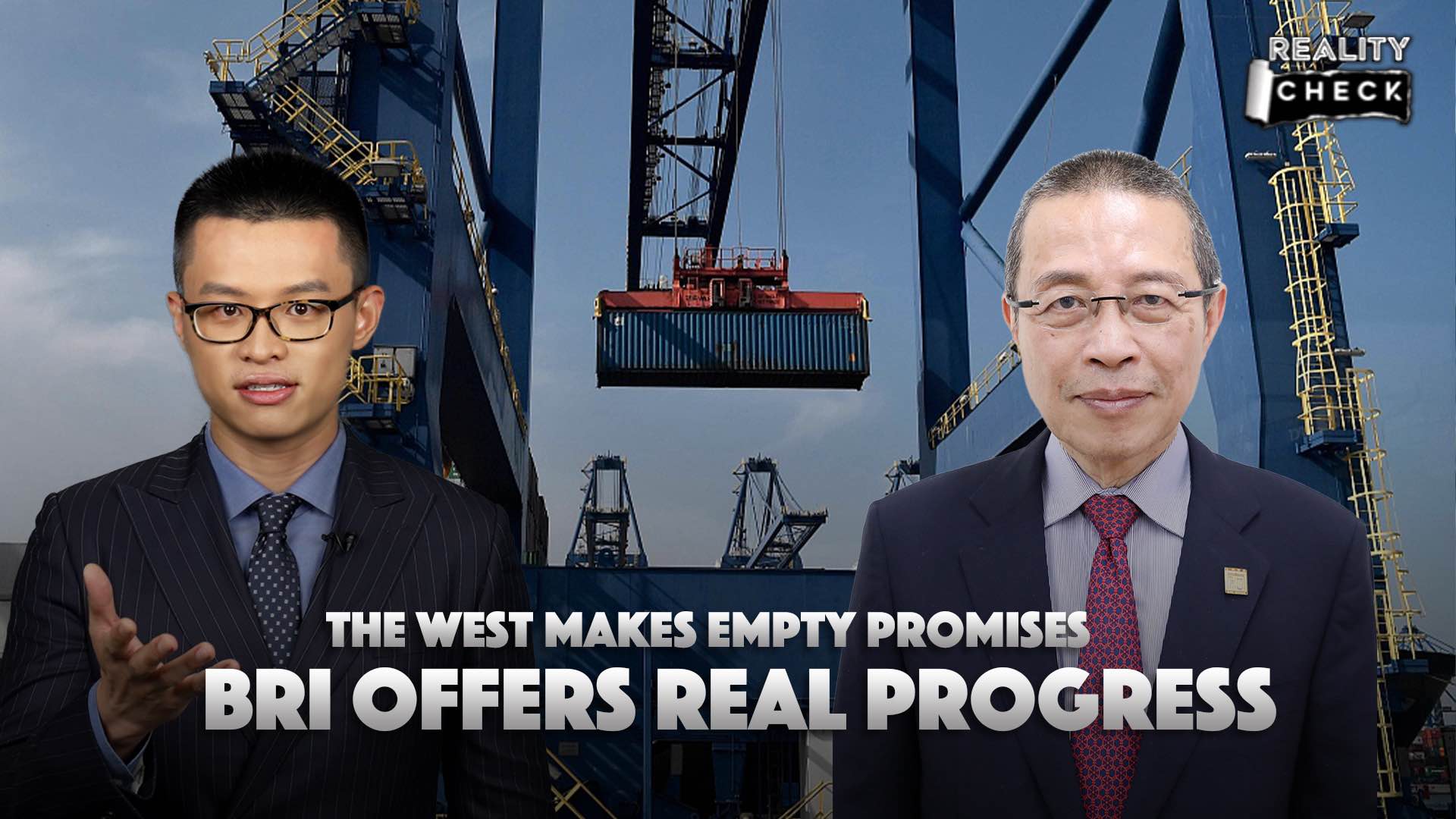05:23

Editor's note: Why is the Belt and Road Initiative a success? What's the difference between the BRI and the West's so-called "alternatives"? We've talked to Liu Yangsheng, senior fellow of the Taihe Institute. The views expressed here are his own and not necessarily those of CGTN.
CGTN: As you know, this year marks the 10th anniversary of the Belt and Road Initiative. What do you see as the greatest success of it?
Liu Yangsheng: The Belt and Road Initiative (BRI) was launched because of two reasons. One, China at that time, 10 years ago, had built up a vast capacity for infrastructure building, became really sophisticated experience and expert at the infrastructure building. And this could be exported as well.
Secondly, if you enrich the infrastructure of your neighboring country, it facilitates trade, facilitates movements of people, goods, and ideas.
And in the last 10 years, we've seen that, the further integration of the ASEAN countries, the Central Asian countries, and now the Middle East (countries) along the Belt and Road, all the way to South America and North Africa with the Chinese economy. Further integration means higher efficiency and broader exchange of goods and services and people's ideas as well.
So, I think what it has done is it now has built a very elaborate infrastructure of supporting the movements of goods, services, and people and ideas. That's the first phase of the BRI. And it has to achieve that substantially.
CGTN: Many Western countries see the Belt and Road Initiative as China exporting its geopolitical influence. And to counter that, they've come up with their own version of similar projects. For example, U.S. President Joe Biden launched this Build Back Better World initiative in 2021. I have two questions here. The first one is, is this kind of strategy wise? And the second one is, is the world really going to benefit from a project that's hatched entirely out of geopolitical confrontation or conflicts?
Liu Yangsheng: I think hatching it from purely geopolitical basis means that it won't get done. It just won't happen. Just like the new gateway they wanted to build. This is out of the G20 a few months ago between India and Europe to the Middle East with trains and ports. Now, when was the last time the U.S. built a new road?
CGTN: I mean, that's also my concern too. It seems like they haven't built roads in a long time. And the roads have been in quite bad conditions for the past decades.
Liu Yangsheng: That's right. So, the U.S. has not built any new railway. The last railway was built over 100 years ago, actually with mostly Chinese labor. But also India, another country that is very ambitious to embark on an infrastructure binge. What has India built in terms of railway? There are no examples of success in building roads and railways and ports.
In fact, the ports along the Belt and Road, the most successful ports were actually on the Belt and Road over the course of the last 10 years in countries like Greece and Portugal. And they were all built under the auspices of Belt and Road. So, China has the capacity to do all of this. So, I think the whole idea of having alternatives is to try to round up more allies, to round up more countries, to back them, to take the stance with them against China. But I don't think that will happen.
There is a side issue here. Belt and Road is based on the needs and requirements and the seeking of the local country involved, not just China. Now, India and Europe, you can build a fantastic trade route. But, to trade what? What does India produce that Europe would demand for? I can't think of anything. Not spices, right? And can India afford the luxury products of Europe? I'm not so sure. So, I just don't see first who is going to build it, who is going to fund it and who is going to actually move goods and services on it. So, under the circumstances, I think it's an empty promise. It's all fake, just like what happened a couple of years ago talking about Indo-Pacific Economic Framework. That framework was a piece of paper, then, and it's still only a piece of paper today.
(If you want to contribute and have specific expertise, please contact us at opinions@cgtn.com. Follow @thouse_opinions on Twitter to discover the latest commentaries in the CGTN Opinion Section.)